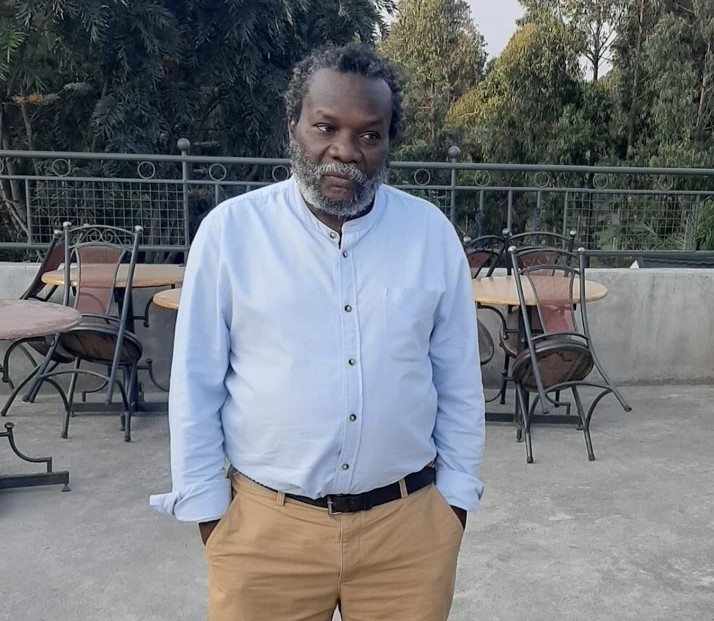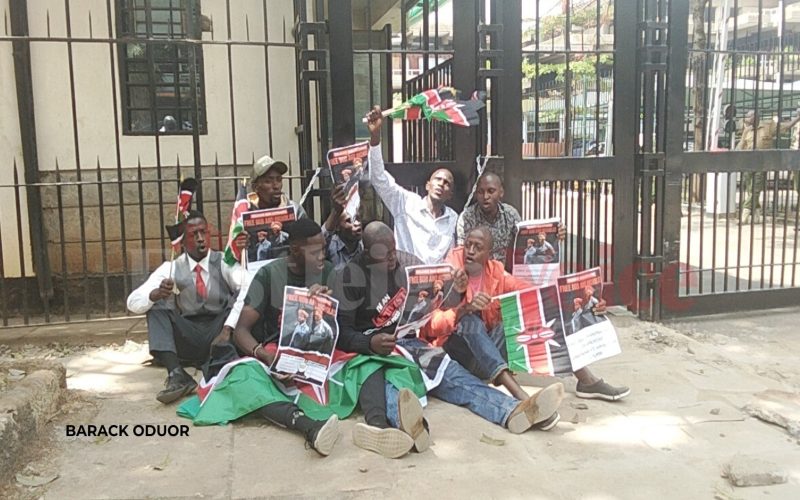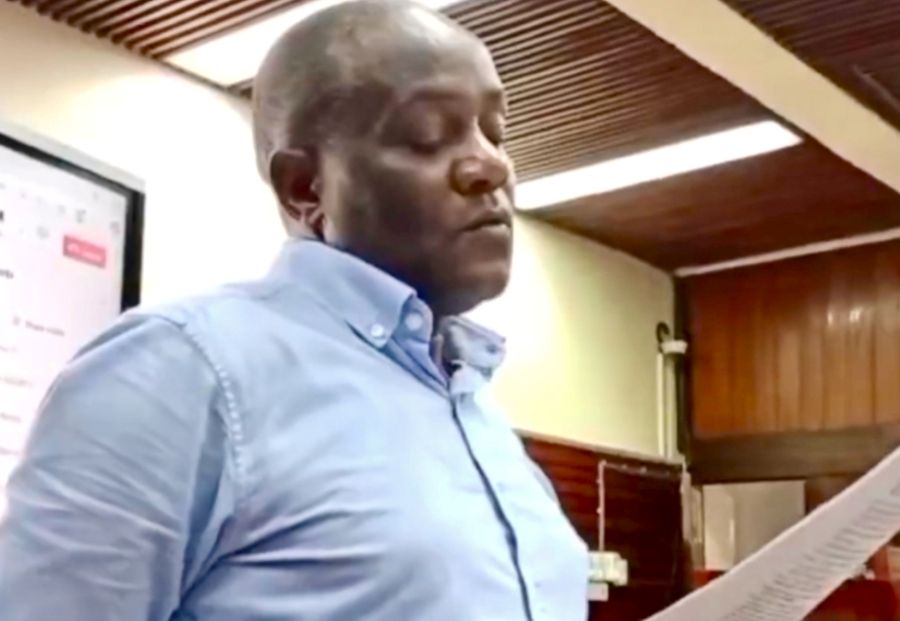Police abductions, disregard of court orders by State agencies reignite worries of the dark days

In 2021, the use of civilian cars during police undercover missions was banned in a bid to stop extra-judicial killings and kidnappings
The abduction and subsequent release of veteran journalist Macharia Gaitho by officers in plain clothes at Karen Police Station in Nairobi on Wednesday morning triggered anger across the media community. At the same time, it triggered the police to confess to having deployed extra-judicial means to silence government critics in the ongoing wave of protests in the country.
Gaitho was abducted by officers in civilian clothes who had been trailing him around Karen in a white Subaru car as his son drove him to work. The son filmed the abduction and shared it online, triggering anger over the ongoing spate of abductions in the country.
More To Read
- High Court asked to compel State to produce missing security analyst Mwenda Mbijiwe
- 73% of Kenyans believe government not doing enough to stop abductions, extra-judicial killings - TIFA Report
- Court terminates abduction case against 15 police officers linked to murders of two Indian nationals, Kenyan taxi driver
- Nairobi Businessman Kakan Maiyo arrested over viral anti-police TikTok video
- Police torture case against British national to proceed on October 24
- Drama at Milimani courts as Governor Natembeya staff allegedly arrested by plainclothes officers
In the video, the journalist is seen being shoved by the officers into a white Toyota Probox car inside the station as some of the officers in uniform looked on without taking action. Gaitho was driven off, only to later be returned to the same spot on claims that his “arrest” was a case of mistaken identity.
The National Police Service (NPS) apologised for the incident and explained that they were looking “to arrest” X user Francis Gaitho for allegedly intentionally publishing false information on social media.
"The National Police Service would like to clarify to the public that this morning, we arrested journalist Macharia Gaitho in a case of mistaken identity, meant for the arrest of Francis Gaitho who is the subject of investigation. We reiterate that as a service we do not target journalists in any way. Today's incident is highly regrettable," NPS said in a statement.
On his part, Gaitho insisted that the police lied.
“That Francis Gaitho does not live where I live, because they trailed me from my house. That Francis Gaitho, as far as I know, does not drive a car that resembles mine. It is me they were looking for; it is me they were trailing,” he said, adding that though the incident is part of the risks that journalists face for their work, he will not be cowed.
Gaitho’s arrest mirrors those of tens of others, some of which happened in the most brutal ways as officers targeting protesters or anti-government influencers engage in an abduction spree that seems to have clearance from a higher authority.
Despite numerous concerns by Kenyans over the abductions, President William Ruto is yet to issue an order stopping that from happening, only hinting that he would look into the matter when he addressed concerns raised by Gen Z two weeks ago.
“Let's agree first that the era of extrajudicial killings is no longer with us. There's a new problem called abduction, and it is something I am going to exercise my mind on because the police have clear rules on how to arrest citizens if they have to," he said, without specifying or detailing courses of action.
The sentiments may have triggered a change of tone in the wording of the police statements on the action officers will take against persons acting against the law during the protests but it did not stop the abductions.
Data from the Kenya National Commission on Human Rights (KNCHR) show that as of Tuesday afternoon, a total of 59 people had been abducted or are still missing following the anti-Finance Bill protests.
“We condemn the abductions and arrests and demand an immediate and unconditional release of all illegally held persons in relation to the protests. The commission has moved to court for orders of habeas corpus in a quest to seek accountability for missing and abducted persons,” said KNCHR Chairperson Roselyne Odede.
Some of the notable victims of abductions are Franje, Osama Otero, Dr Austin Omondi, Drey Mwangi, Shad Khalif, Gabriel Oguda, and former Nandi Hills MP Alfred Keter, all of who are reported to have had their phones confiscated and some tortured before they were released. Some said they were dumped in unfamiliar places and left on their own to find their way home.
 A protester reacts during a demonstration in Nairobi over police killings of people protesting against the imposition of tax hikes by the government, on July 2, 2024. (Photo: REUTERS/Monicah Mwangi)
A protester reacts during a demonstration in Nairobi over police killings of people protesting against the imposition of tax hikes by the government, on July 2, 2024. (Photo: REUTERS/Monicah Mwangi)
So glaring are the abductions that in less than a week in June, at least 12 social media influencers were abducted in what the Police Reforms Working Group-Kenya, a human rights organisation that advocates for reforms in policing in Kenya, said is a gross violation of human rights and amounts to arbitrary arrests and enforced disappearance as prohibited under Article 29 of the Kenyan Constitution.
“Enforced disappearance, as defined by Article 29 of the Constitution, involves the arrest, detention, or abduction of an individual by state agents or persons acting with state authorisation, followed by a refusal to acknowledge the person’s fate or whereabouts,” the group said last month.
The incidents are happening across the country, including in Isiolo where three men aged between 22 and 35 years are said to have been abducted by unknown assailants while leaving a popular hotel in Isiolo town about two weeks ago and their whereabouts remain unknown.
The three, Mukhtar Tache Ali, Nura Abdi Diba, and Issa Osman, were bundled into two waiting Toyota Prados and a Subaru car by heavily built masked men suspected to be police officers and driven toward Nairobi.
Their relatives have visited police stations in Isiolo, Kiambu, and Nairobi counties but are yet to find them.
This is despite the High Court in Isiolo a week ago ordering the Inspector-General of Police to produce Issa following an application by his family that listed the Directorate of Public Prosecutions, the Attorney-General, the Directorate of Criminal Investigations, and the National Intelligence Service as respondents.
An inter partes hearing that the court had scheduled on July 10 at 4 pm never happened as the office of the IG did not heed or respond to the order.
The family had moved to court seeking orders to have the respondents, whom they suspect could be holding their kin, directed to share information on his whereabouts and release him.
The cases are being investigated by detectives from the DCI who, despite having previously reached out to relatives of the missing person, were hesitant to speak to the media.
On Wednesday, youth leaders demanded the release of the three young people, saying it was sad that government officials were disregarding court orders.
“You cannot hold young men incommunicado without telling their families what they have done if anything," Fara Hassan said, demanding that the three be presented in court as the law requires.
The youth also took issues with what they termed as the government's continued denial of its involvement in the abductions.
"If you are not the ones responsible, arrest and prosecute the criminals and help the families trace their loved ones," Fara said.
The abductions are happening in a manner that goes against the October 2021 ban on police use of civilian cars during undercover missions in a bid to stop extra-judicial killings and kidnappings.
They are also happening despite an existing court order obtained by the Law Society of Kenya (LSK) that barred security agencies, including the police and intelligence officials, their agents, or employees, from arresting and holding peaceful protesters incommunicado.
Human rights organisations are offering psychological support to victims of abductions, several of whom seemed disoriented after their release, triggering condemnation of the police.
Human rights advocates and lawyers have warned that the handling of protests by the police risks taking the country back to the dark days of the one-party rule under former president Daniel Moi when abductions were the order of the day, with torture chambers being used to extract information from suspects.
“Thirty years later, we can’t have a National Police Service that is abducting people in the middle of the night,” Mr Irungu Houghton, the executive director of Amnesty International Kenya, said on Wednesday.
The ongoing abductions did not start with the Gen Z protests. As early as July last year, LSK had issued a warning about the possible return of the “dark days of repression” and promised to work to ensure that the rights of every Kenyan are protected.
“Let us unite as Kenyans and stand firm against any attempts to subvert the democratic principles that have guided our nation’s journey. Together, we can safeguard the future of our democracy and ensure that the rights and freedoms of every citizen are upheld and respected,” LSK President Faith Odiambo said.
Top Stories Today












































